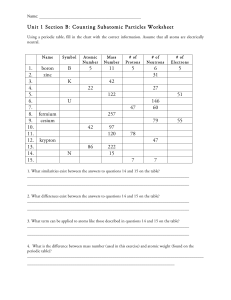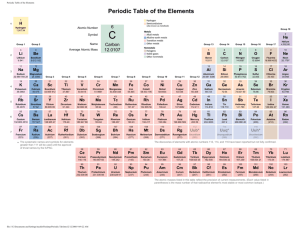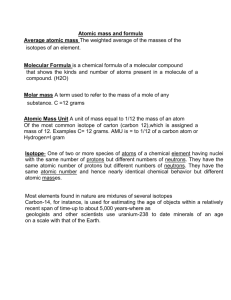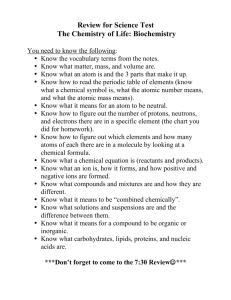Isotopic Notation
advertisement
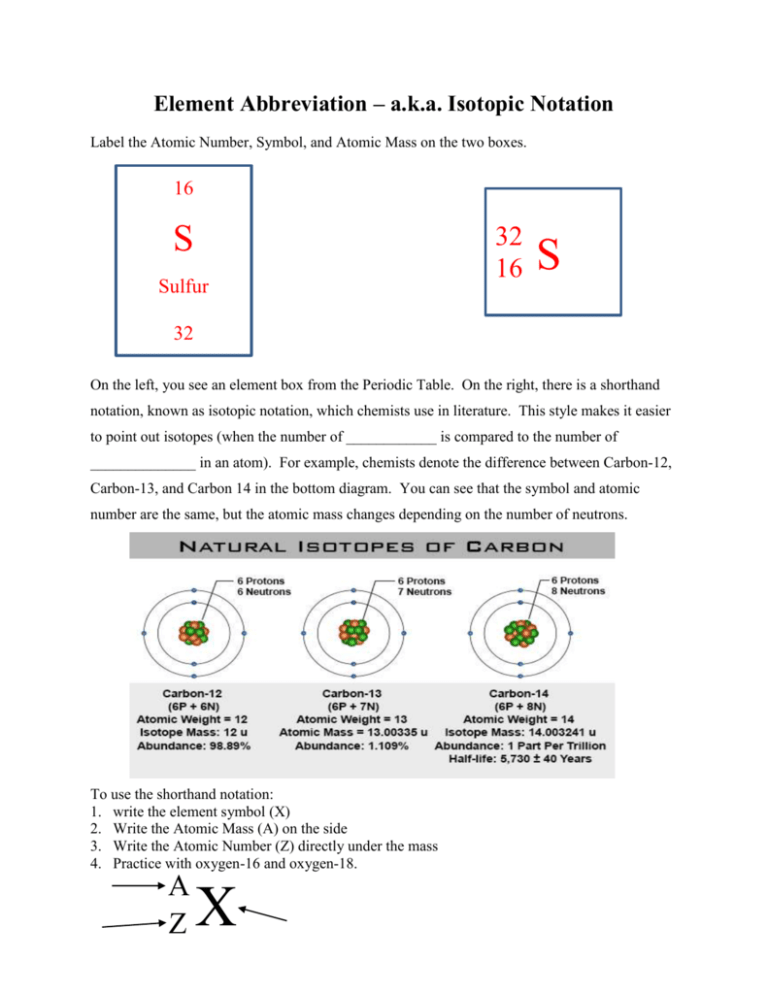
Element Abbreviation – a.k.a. Isotopic Notation Label the Atomic Number, Symbol, and Atomic Mass on the two boxes. 16 S Sulfur 32 16 S 32 On the left, you see an element box from the Periodic Table. On the right, there is a shorthand notation, known as isotopic notation, which chemists use in literature. This style makes it easier to point out isotopes (when the number of ____________ is compared to the number of ______________ in an atom). For example, chemists denote the difference between Carbon-12, Carbon-13, and Carbon 14 in the bottom diagram. You can see that the symbol and atomic number are the same, but the atomic mass changes depending on the number of neutrons. To use the shorthand notation: 1. write the element symbol (X) 2. Write the Atomic Mass (A) on the side 3. Write the Atomic Number (Z) directly under the mass 4. Practice with oxygen-16 and oxygen-18. A Z X 235 92 U 237 92 U 238 92 U Which element is this? _______________________________ What is the Atomic Number? ________________ What are the Atomic Masses? _____________________________ Which one is the standard version (Look on your Periodic Table)? _________________ Which are the isotopes? ________________ 35 17 Cl 37 17 Cl 38 17 Cl Which element is this? _______________________________ What is the Atomic Number? ________________ What are the Atomic Masses? _____________________________ Which one is the standard version (Look on your Periodic Table)? _________________ Which are the isotopes? ________________ 11 5 B Which element is this? _______________________________ How many protons does this element have? ________________ How many neutrons does this element have? _______________ Is the standard version of this element (Look on your Periodic Table)? _________________
